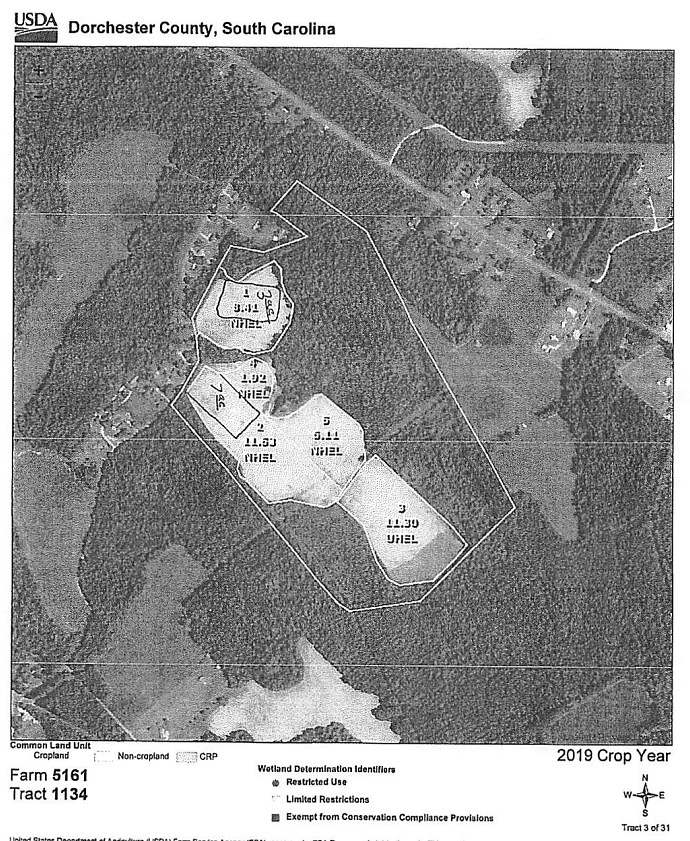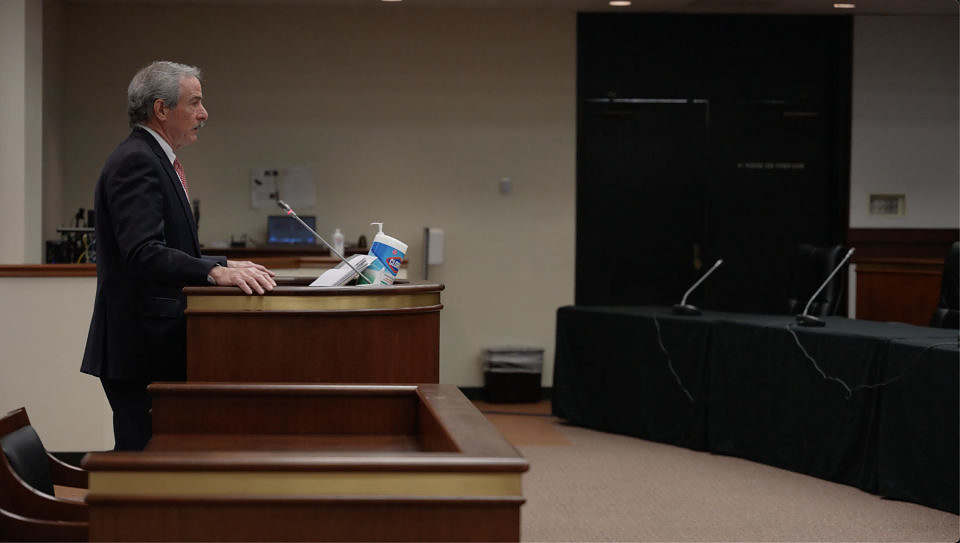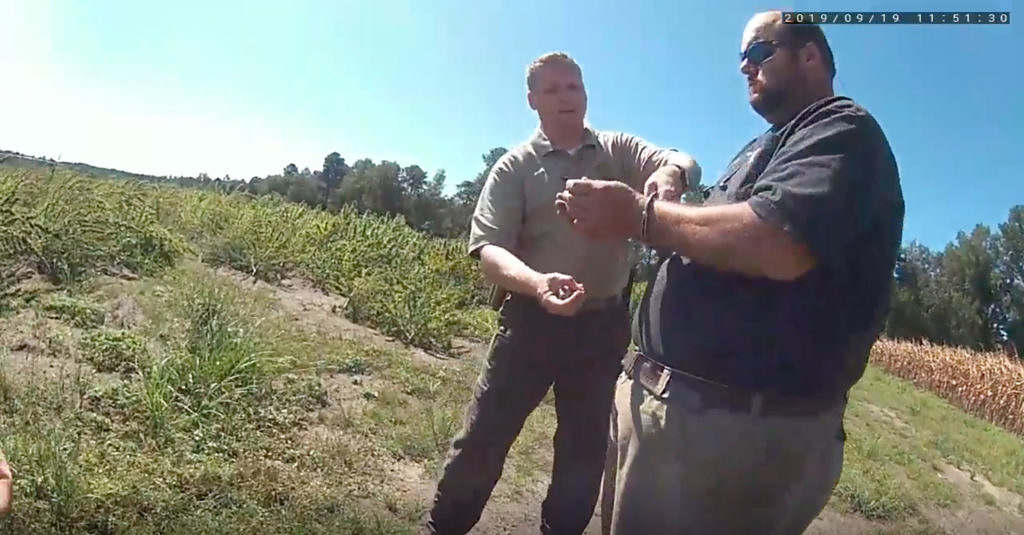|
Getting your Trinity Audio player ready...
|
The controversial destruction of 38-year-old John Trenton Pendarvis’ hemp field by agents of the S.C. State Law Enforcement Division (SLED) in September 2019 all but guaranteed a monsoon of litigation.
Pendarvis, a licensed hemp cultivator, planted on a plot of land he claims he “didn’t realize” was not included in his license after weather forced him to adjust his plans. S.C. Department of Agriculture (SCDA) officials viewed “this conduct as willful” and contacted the S.C. State Law Enforcement Division (SLED) asking its agents to “enact enforcement of this willful violation.”

Willful or otherwise, Pendarvis was the first licensed hemp farmer to face scrutiny by law enforcement officers, who themselves were not entirely sure where the boundaries of legality lay.
SLED Major Frank O’Neal told SCDA officials “we are having difficulty in what to address with so many gray areas concerning enforcement … we are having to get AG opinions along the way and the last thing we want to do is an action that will be perceived in a negative light by the media or general assembly.”
Once a South Carolina Attorney General (SCAG) Office advisory opinion was issued suggesting SLED likely could interdict with judicial approval, agents set out to get a warrant. First, they contacted S.C. circuit court judge Diane Goodstein’s law clerk, who informed the agency the judge had declined to sign the order ex parte – but would give SLED a hearing in open court.
Instead, on the morning of September 19, 2019, SLED obtained an arrest warrant from Dorchester County Magistrate Ryan D. Templeton. SLED failed to inform Templeton of its previous dealings with Goodstein – or of the fact its agents intended to destroy the crop in question.
Dubious warrant in hand, SLED agents mowed down ten acres of hemp valued at more than $12 million and took Pendarvis into custody. The legality of this arrest – and subsequent destruction of his crop – was contested from the moment Pendarvis was cuffed. His first suit was filed shortly after criminal charges were dropped due to insufficient evidence by the office of S.C. first circuit solicitor David Pascoe.
(Click to view)
Pendarvis’ Dorchester County suit personally named SLED chief Mark Keel, agriculture commissioner Hugh Weathers and sheriff L.C. Knight – and seeks to recover damages for the destruction of the crop.
The discovery process in this case has been acrimonious. Pendarvis’ legal team has argued for months that Keel’s attorneys inappropriately fought attempts to compel the production of information about SLED’s investigation. Pendarvis’ attorneys further claimed Keel intentionally failed to satisfactorily respond to their interrogatories – and delayed providing pertinent information in “intentional, willful and ongoing” abuse of discovery rules.
In a February 22, 2023 court order (.pdf), S.C. Circuit Court judge Maite Murphy ruled Keel had failed to comply with multiple rules of evidence – and directed him to “refrain from the confusing, unnecessary and time-wasting practice of inserting language objecting to responding while also purporting to respond.”
The interrogatories Keel failed to respond to dealt directly with SLED’s alleged judge shopping. Specifically, Murphy argued that Keel’s response evaded “admitting or denying whether judicial approval was sought for the destruction of the Plaintiff’s hemp crop.”
“The request did not ask Keel whether judicial approval had been sought to arrest the Plaintiff,” her ruling noted. “It specifically asked Keel to admit whether judicial approval had been sought to destroy his hemp crop. Admitting that SLED sought approval to arrest the Plaintiff is a blatant attempt to avoid admitting or denying whether SLED attempted to comply with August 8, 2019 opinion they received from the South Carolina Attorney General.”
Mincing no words, the judge admonished Keel – finding his conduct in the discovery process “dilatory, prejudicial, willful, intentional and in bad faith.” She went on to call his responses “false, misleading, and incomplete” – adding that “a party does not get to respond to the request they wish was asked, they must respond to the request submitted.”
Murphy called the prejudice to Pendarvis from Keel’s conduct “clear, convincing and substantial” – and found that sanctions for both attorney’s fees and costs was warranted. Keel was ordered to perform additional discovery activities and produce a complete copy of the emails Pendarvis requested – and to pay Pendarvis’ attorney Patrick J. McLaughlin $11,307.36 within thirty days of the order being filed.
Last Friday evening, SLED filed its response (.pdf) to Murphy’s order. The agency began the filing by arguing that the agency – not Keel individually – is the proper defendant in this case.

***
The bulk of SLED’s response focused on refuting Murphy’s admonishment of Keel – saying “the evidence in the record does not support such a harsh finding.” To corroborate this claim, SLED provided a timeline of its production of requested evidence in the case that fit within statutorily designated timeframes – and further argued that the agency couldn’t reasonably provide personnel documentation of agents who were not parties to the case.
SLED also asked the court to amend its order to permit the agency to redact the personal identification and financial information of its personnel prior to producing the court ordered documentation.
SLED objected to Pendarvis’ attorneys citing information obtained via the discovery process in similar lawsuits filed against the agency in other jurisdictions – and refuted claims that it withheld documentation until it was presented in another jurisdiction. Both SLED/ Keel face separate lawsuits in Dorchester and Marion counties for the destruction of two of Pendarvis’ fields in the respective counties. Murphy argued that Keel’s conduct “intertwined’ the discovery processes of the two cases – SLED disagrees with this interpretation, claiming the two suits raise “separate and distinct factual and legal issues.”
Pendarvis’ attorneys also sought information from the S.C. Insurance Reserve Fund (IRF) – which exists to provide insurance coverage for the state’s governmental agencies. SLED’s filing argued that statutes protect information about claims until “the claim is settled or finally concluded” and that its failure to furnish information protected by this statute isn’t an indication it is acting in bad faith.
SLED concluded by objecting to the judge awarding attorneys’ fees as being premature, and argued against the $500 hourly rate used by the judge to calculate the awarded fees.
SLED’s rebuttal provided plausible justification for all of the issues raised in judge Murphy’s order. It will now be up to Murphy to determine whether these are honest explanations made by a party acting in good faith as she evaluates SLED’s response to her sharp criticisms of their conduct.
Count on this news outlet to provide continued coverage of these legal proceedings as they move forward.
***
ABOUT THE AUTHOR …
(Via: Travis Bell)
Dylan Nolan is the director of special projects at FITSNews. He graduated from the Darla Moore school of business in 2021 with an accounting degree. Got a tip or story idea for Dylan? Email him here. You can also engage him socially @DNolan2000.
***
WANNA SOUND OFF?
Got something you’d like to say in response to one of our articles? Or an issue you’d like to address proactively? We have an open microphone policy! Submit your letter to the editor (or guest column) via email HERE. Got a tip for a story? CLICK HERE. Got a technical question or a glitch to report? CLICK HERE.




3 comments
Sounds like some work of the GOB’s club. Which is still everywhere!!
Bible Belt = Good Ole Boys
Very well-written and summarized! Keep us informed – this is literally the most interesting thing happening in South Carolina.